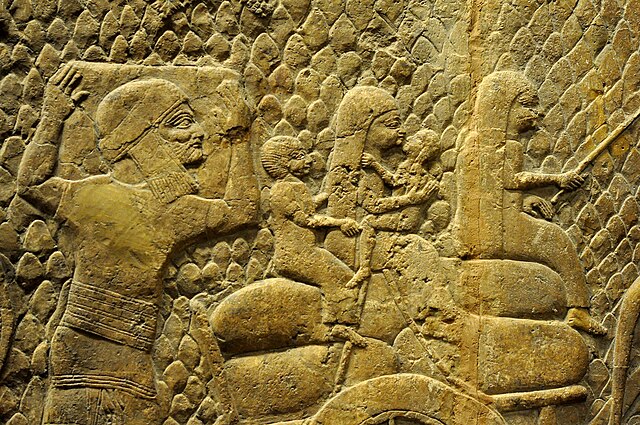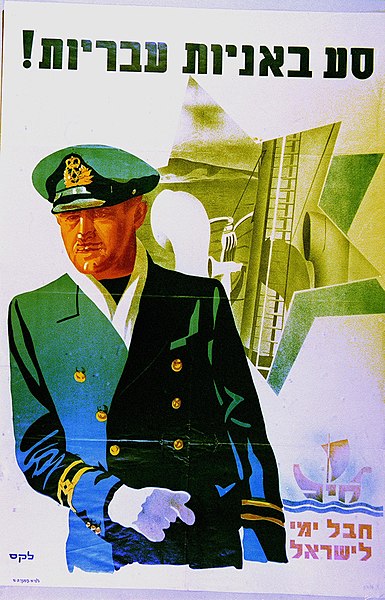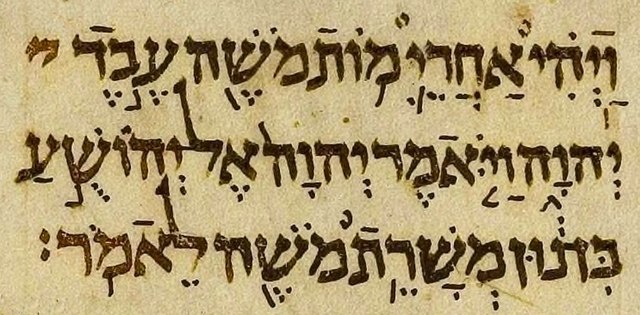The Hebrews were an ancient Semitic-speaking people. Historians mostly consider the Hebrews as synonymous with the Israelites, with the term "Hebrew" denoting an Israelite from the nomadic era that preceded the establishment of the united Kingdom of Israel. However, in some instances, the designation "Hebrews" may also be used historically in a wider sense, referring to the Phoenicians or other ancient civilizations, such as the Shasu on the eve of the Late Bronze Age collapse. It appears 34 times within 32 verses of the Hebrew Bible. Some scholars regard "Hebrews" as an ethnonym, while others do not, and others still hold that the multiple modern connotations of ethnicity may not all map well onto the sociology of ancient Near-Eastern groups.
Judaean prisoners being deported into exile to other parts of the Assyrian Empire. Wall relief from the Southwest Palace at Nineveh, Mesopotamia, dated to 700–692 BCE (the Neo-Assyrian period). Currently on display at the British Museum.
A depiction of the Ancient Hebrews in Dura-Europos synagogue
Moses leads the Israelites across the Red Sea while pursued by Pharaoh. Fresco from the Dura-Europos synagogue in Syria, 244–256 CE
1940s poster: Sail on Hebrew ships!
Hebrew is a Northwest Semitic language within the Afroasiatic language family. A regional dialect of the Canaanite languages, it was natively spoken by the Israelites and remained in regular use as a first language until after 200 CE and as the liturgical language of Judaism and Samaritanism. The language was revived as a spoken language in the 19th century, and is the only successful large-scale example of linguistic revival. It is the only Canaanite language, as well as one of only two Northwest Semitic languages, with the other being Aramaic, still spoken today.
Portion of the Isaiah Scroll, a second-century BCE manuscript of the Biblical Book of Isaiah and one of the best-preserved of the Dead Sea Scrolls.
The word IVRIT ("Hebrew") written in modern Hebrew language (top) and in Paleo-Hebrew alphabet (bottom)
A silver matchbox holder with inscription in Hebrew
Aleppo Codex: 10th century Hebrew Bible with Masoretic pointing (Joshua 1:1).








